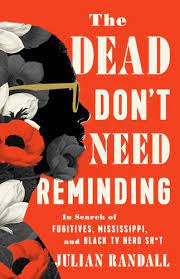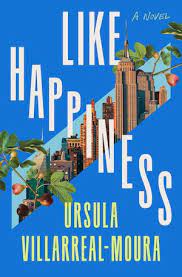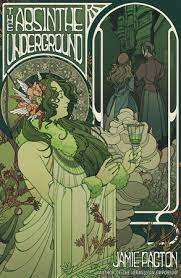
Book: Can’t Spell Treason without Tea
Author: Rebecca Thorne
Publisher: Bramble / Tor Books
Year: 2024
Rating: 4 out of 5 stars
Synopsis : “All Reyna and Kianthe want is to open a bookshop that serves tea while firelight drifts between the rafters. However, Reyna works as one of the queen’s private guards, and Kianthe is the most powerful mage in existence. Leaving their lives isn’t so easy.
But after an assassin takes Reyna hostage, she decides she’s thoroughly done risking her life for a self-centered queen. Meanwhile, Kianthe has been waiting for a chance to flee responsibility – all the better that her girlfriend is on board. Together, they settle in Tawney, a town nestled in the icy tundra near dragon country, and open the shop of their dreams.
What follows is a cozy tale of mishaps, mysteries, and a murderous queen throwing the realm’s biggest temper tantrum, where these two women will discover just what they mean to each other…and the world.”
Review : This is another first for me, notably from the same publishing house as the last book I reviewed, a book that was originally independently published in 2022 and has now been picked up by a major publisher, scheduled to be re-released in 2024. I thought it looked familiar! Turns out I’ve been seeing people post about Can’t Spell Treason without Tea for a little while after it’s independent publishing. With the popularity of Travis Baldree’s Legends and Lattes, it’s little wonder a book that credits Baldree’s debut novel with it’s inception, has done so well! I have also found myself swept up in Baldree’s world, searching for additional cozy fantasy novels since finishing both his books, so this was a welcome surprise.
Thorne has successfully created a cozy, relatively low-stakes, fantasy novel that seems to check all the boxes for me. There’s rich world-building without the confusing word salad that sometimes accompanies fantasy novels, I never once struggled to visualize the queendom or any of it’s surrounding countries; there’s just enough mention of tea blends, baked goods, and rolling fires without going so far down the rabbit hole that the entire story becomes a cook book; and there’s mystery and adventure, peppered with betrayal, gryphon flights, and just a dash of magic. It’s the perfect blend of everything I’m looking for in a cozy, no-anxiety, fantasy novel. Thorne sets us up well for additional books, something I’m greatly anticipating (I know there’s a second book coming! It, like the first book, was also originally independently published, but will be re-released later this year). I even tried to buy book two in it’s independent form, but it’s already been marked up to roughly $150 so, like the rest of you, I will be waiting until the fall for the second installment. And that’s about as high of praise as I can give – I never attempt to buy a sequel of a copy I’ve been gifted as an ARC, I try my hand at getting the review copy for the next book in the lineup, and if I don’t get it, I move on.
There were a couple instances where I felt this book could have benefitted from some additional editing, but I suspect that may come with a bit of time, experience, and additional books. None of it felt so grievous that I wouldn’t read more in the future or wouldn’t recommend the series to friends (which I have already done!), but it’s worth mentioning. First, I realize the series is literally called Tomes & Tea, but the overuse of the word “tome” grated on my nerves throughout the book. I think this book, and subsequent books, would benefit from occasionally referring to books as something other than tomes, but that’s a personal preference on my end and perhaps it doesn’t bother anyone else. And second, there were several instance of dialogue that felt so stilted, it was clear this is a debut novel – and I do thin that’s okay! Like I said, I think some of these small errors will be adjusted with time and experience and I expect that book two, and any further books Thorne decides to write, will likely improve. There’s a lot of overuse of the word “girlfriend” in conversation that doesn’t read true to spoken dialogue, or overly formal wording that doesn’t quite strike me as realistic to a verbal conversation. I’m aware that this is a fantasy and not meant to be realistic, but I do expect dialogue to be at least convincing.
Advice : I highly suggest you mark this one on your calendar! If you love cozy, low stakes, but highly enjoyable, smut-free fantasy, this will be right up your alley. If you enjoyed Travis Baldree’s books, this one is definitely for you.








